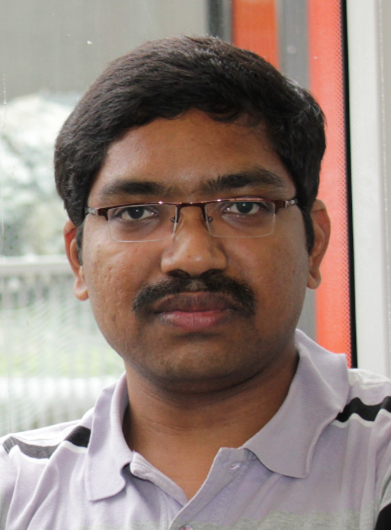Featured Eminent Speaker of ACM India: Krishnasuri Narayanam
The ACM India Eminent Speaker Program (ESP) provides ACM Student and Professional chapters and institutional partners in India with direct access to top technology leaders, innovators and researchers who will give talks on contemporary and engaging issues that are important to the computing community. Chapters can invite ESP speakers to give talks as part of events that they hold. ACM India will help cover the costs for travel while the local chapter will arrange accommodation and local logistics. While most of the talks should be in-person to encourage interactions, some of the talks may be done virtually. For more details, see the ACM India ESP Page.
Bio
Krishnasuri Narayanam is a Senior Research Engineer and Manager (Data Centric AI) at IBM Research India, Bangalore. He is an IBM Master Inventor with 45 Granted US Patents and an author of IEEE/ACM peer-reviewed research papers. He has obtained an MS degree in Computer Science & Engineering from IIT Madras in the year 2006. He has more than 17 years of experience developing and delivering distributed computing solutions. He has worked as a Software Engineer at Symantec, Pune before joining IBM Research in 2010. He is serving as an ACM India PhD Clinic mentor, ACM India Eminent Speaker, ACM Member, and IEEE Senior Member.
Please tell us a little about your research and team at IBM Research.
In the recent past, I have carried out research in the domains of blockchain and sustainable computing. Currently, I have started exploring research problems related to Data & AI. This involves the use of large language models for tabular data analysis tasks, such as data quality and text-to-SQL generation. Adopting LLMs for specific tasks may require fine-tuning or prompt engineering. LLMs exhibit the ability to learn a new task from a small set of examples provided as part of the prompt during inferencing, known as in-context learning. Prompt engineering is the design of prompts to leverage the inherent capabilities of LLMs to enable them to handle specific tasks. My team at IBM Research works on areas like data enrichment, data integration, GraphQL generation, and automatic prompt generation for tabular data sets to perform specific downstream tasks.
How did your career path lead you to research in the areas of blockchain and sustainable computing?
I have contributed to several projects that required building distributed computing solutions to address business problems for IBM clients. Thus, contributing to the area of blockchain was a natural fit for me as per the needs of our organization’s research strategy. I was also collaborating with my colleagues from other business units to pursue research on cloud computing out of my personal interest, which led to successfully filing a few patent applications at USPTO. These experiences helped me take up an exciting career opportunity of leading a team of researchers and software engineers working on sustainable computing. It was always enriching to be a part of the evolution of cutting-edge technologies like blockchain and sustainable computing, and contribute towards the technology enhancements while also delivering solutions to clients using such technologies.
For someone who is unfamiliar with blockchain technology, how are innovations in this field impacting society?
Blockchain technology has drawn the interest of both academia and industry across the world from different fields of Computer Science such as distributed computing, databases, cryptography, and networking. Researchers and software developers have created frameworks to integrate blockchain into software solutions. There are a lot of innovations backed by blockchain that have helped address business problems in various domains. E.g., blockchain technology helped address process inefficiencies concerning time and cost in the supply chain industry and eliminate intermediaries in fintech sector. In my opinion, blockchain innovations related to agriculture, healthcare and insurance have a huge potential of creating societal impact with use-cases that can transform these sectors.
What innovations do you see on the horizon to make computing more sustainable?
The intermittent nature of renewable energy generation is a challenge that cloud providers typically need to deal with. Shifting workloads across time and locations to when and where less-carbon intensive energy is available is a practice adopted by cloud providers to reduce the carbon emissions from their cloud operations. Workload placement, scheduling and optimization based on low-carbon energy availability is another practice that cloud providers adopt. The objective of such innovations is to maximize CPU utilization during low-carbon energy availability periods and vice versa. Carbon-aware load balancing of workloads across multiple server instances, deployed across the nodes of a single cluster or across the nodes of different clusters, is another domain innovation that helps make computing more sustainable.
Why are you part of the ESP program? What motivates you?
ACM India’s Eminent Speaker Program (ESP) is a platform that facilitates interaction of industry professionals with academia. In particular, this program helps the academic community benefit via knowledge sharing from domain experts. The ESP program can be viewed as a supply demand matching system where the industry experts with intent of giving back to the academic ecosystem form the supply side while the academic student community forms the demand side, particularly those from institutions located in small towns. Since I have also come from such a background, I can very much relate to the value of these interactions with industry experts, and this motivates me to take part in this ACM initiative. Moreover, IBM encourages its employees to participate in volunteering activities to give back to the society which also motivates me to be part of the ESP program.
If your ACM Chapter would like to invite Krishnasuri Narayanam to give a talk on any of these or relevant topics, please follow the guidelines for inviting an ESP Speaker available here.
- Blockchain for accelerated processing of Supply Chain
- Overview of Blockchain interoperability
- Carbon-aware Cloud Data Center Optimization
You can also start an ACM Chapter or become an ACM Member.
